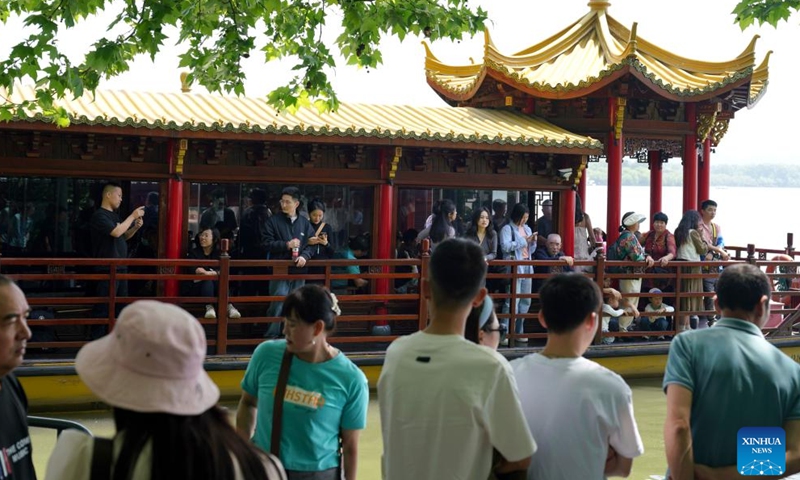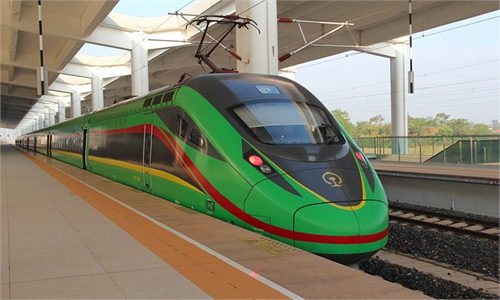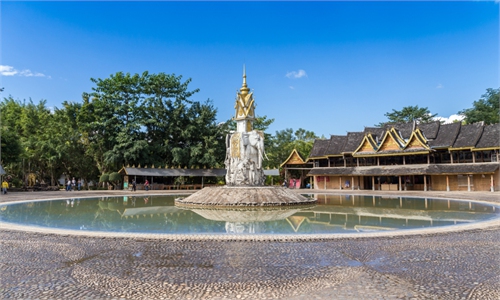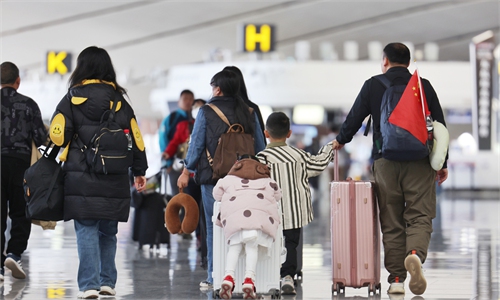
Tourists visit the West Lake in Hangzhou, east China's Zhejiang Province, April 18, 2024. (Xinhua/Han Chuanhao)
As the May Day holidays approach and Chinese people prepare to flock to tourist sites, the debate has arisen again about whether to have compensatory working days to allow for longer holidays, or just to rest on the official holidays.China now has seven official festivals totaling 11 days: New Year, Spring Festival, Qingming Festival, May Day, Dragon Boat Festival, Mid-Autumn Festival and National Day. The Spring Festival and National Day holidays are three days, usually extended to a week with compensatory working weekends. The one-day May Day holiday has been extended to five days with compensatory working days.
China's first holiday adjustment dates back to 1999 and the debate has existed ever since.
On Monday, hashtags like "Stop compensatory working days" ranked high on the search list on Sina Weibo, with people expressing their dissatisfaction with the current policy.
"I don't want five-day holidays with over-packed highways, trains, planes and tourist spots. I just want a normal two-day weekend," said one post, representing the opinion of many netizens.
"Considering the two six-day working weeks, the holidays immediately lose attraction," read another post.
But there are also voices supporting the extended holidays, which allow people to have their own plans such as traveling with families.
China's 11 official holidays give it a ranking of roughly 80 out of more than 190 countries and regions worldwide, similar to France and Italy and longer than the UK and the US, according to an official survey in 2013. The number of holidays are about 15 in South Korea and Japan, per media reports.
A common impression is that "hardworking" Chinese people do not take vacations. The difference is in paid leave, or annual vacation.
A survey of 62 countries found that for employees who have worked more than 10 years, the average paid leave is 19 days, almost double the average of 10 days in China.
The Global Times did a small survey among some 30 people working in big and small cities about their preference between two options: A, longer holidays with compensatory working days; or B, only official holidays and normal weekends.
The responses were about 50-50, which explains why the current policy has stood the test of time, despite a lot of public dissatisfaction.
For those who chose A, the paid leave policy is usually not implemented or the procedures are too long and complicated, making the "extended holidays" the only time they can travel or have a longer break, such as family visits or attending weddings.
Such "officially announced" long holidays also benefit big families who want to travel together, as the members may not be able to ask for leave at the same time.
Chen from Hangzhou, East China's Zhejiang Province, told the Global Times it's not easy to get approval for paid leave. And sometimes Chen is contacted by the office, even when on holiday. "The extended holidays are real holidays when the supervisor is also off work."
Meng Fan, who works at an internet company in Beijing, chose plan B as she has 15 days of paid leave and they accumulate with time. "I can avoid the peak travel period and everything is cheaper. A one-day weekend cannot compensate for the exhaustion of six days of work."
In addition to offering paid leave, companies could create their own arrangements within the framework of national policies, a Shanghai resident surnamed Huang suggested.
This would be more feasible for smaller companies, where the employer can collect opinions of employees and make policies accordingly.
The current policy has contributed to tourism revenue in recent decades, economic data shows, but some argue that the revenues would be even greater and the industry would be healthier if people could travel in different seasons throughout the year.
Wu Bihu, a professor and director at the Tourism Research and Planning Center at Peking University, told the Beijing News that adjusting the holiday policy has been discussed at an official level and he has attended some of the sessions, but no new plans have yet been made.
Any change to the policy would require massive inter-ministry coordination. Since 2014, the holiday arrangements have been made annually by an inter-ministry joint meeting on tourism-related affairs. This mechanism was set up under the former China National Tourism Administration, which became part of the Ministry of Culture and Tourism in 2018.
Each official body can better handle affairs within its own responsibilities and prioritize its own industry, but holiday policy involves many different sectors and public opinions vary dramatically, Wu noted.



